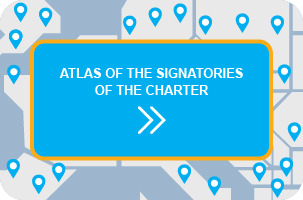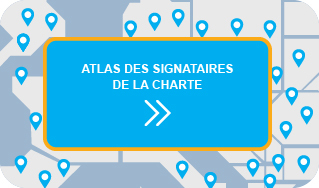European good practices inspire beyond the Atlantic
An original European initiative that has already prompted similar actions in other regions (for example, the Euro Mediterranean Charter for Equality), the European Charter for Equality of Women and Men in Local Life has now caught the attention of the Latin America and Caribbean.
On 28 April, the Inter-American Development Bank (IDB) welcomed representatives from two Charter signatories, the Association of Basque Municipalities (EUDEL) and the City of Graz (Austria), to a workshop in Washington D.C. to share good practices in gender and gender mainstreaming that can be reproduced in the IDB’s future decentralisation projects in Latin America. The Basque Institute for Women’s Equality (Emakunde), which works closely with local governments in the Basque Country and with CEMR member EUDEL, was also recognised for integrating mainstreaming gender in public procurement processes.
Based in Washington D.C., the IDB is the main source of financing for economic, social and institutional development in Latin America and the Caribbean. It aims to improve health, education and infrastructure in Latin American and Caribbean countries through financial and technical support. Through loans, donations and technical assistance, the IDB supports work to reduce poverty and inequality. The good European practices were identified and selected by the IDB with the aim of transferring them to the countries they work with.
Out of the 35 good practices that were initially identified in the pre-selection round, eight of them were from Charter signatories featured on the Charter’s online Observatory. The first 3 in the list below were chosen to participate in the workshop on 28 April.
- Gender Equality in public procurement contracts – Emakunde, Basque Country
Ever since the Law for Equality of Women and Men was approved in the Basque Autonomous Community in 2005, a gender has been integrated in the public procurement processes of the Basque administration. Equality clauses in public procurement are provisions or conditions that are included in contracts made by public institutions to carry out public works or to purchase goods and services. Now a common and widespread practice in Basque public administrations, such clauses aim to eliminate gender inequalities and to promote equality of women and men.
For additional information click here (EN)
- “Graz Goes Equal!” – Graz, Austria
This is not the first time that the “Graz Goes Equal” project has been recognised as a model for implementing gender equality in all policy areas and all fields of action. Graz was awarded the Austrian Public Sector Award in the Gender, Diversity and Integration category for their gender mainstreaming activities in 2008. Among the reasons why “Graz Goes Equal” is such a success: a top-down process that involves managers and employees, cooperation with external partners, the City’s recognition of its responsibility toward citizens, and the goal of creating a “domino-effect” of mainstreaming gender across organisational units.
For additional information click here (DE)
- Virginia Woolf Basqueskola for women elected representatives – Association of Basque Municipalities (EUDEL) & Emakunde
An initiative launched by EUDEL and Emakunde in 2012, the Virginia Woolf Basqueskola aims to create a dedicated space—or, “a space of their own”—for women involved in Basque municipal politics (Mayors, Councillors, etc.). At the Basqueskola, local elected women can obtain information and training, develop their skills and become empowered both as individuals and as a collective group.
For additional information click here
- Gender Audits – Castel del Piano, Grosseto province, Italy
- Gender equality requirements in public procurement – SALAR, Sweden
- Gender responsive policies and budgets on local level – The former Yugoslav Republic of Macedonia
- “Time Office” – Rennes, France
Participants in the workshop came to Washington D.C. with their dedication, energy and innovative ideas and left with new relationships and possibilities for future international cooperation in promoting gender equality!

















